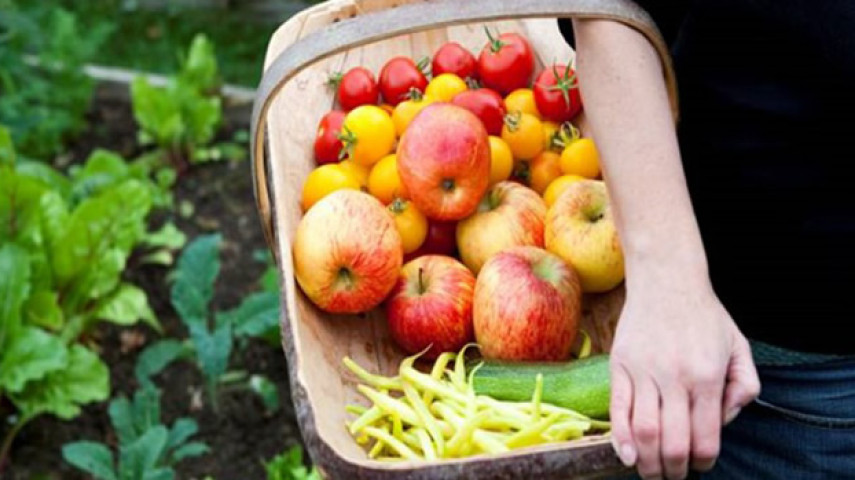 Growing food at home is a great way to eat healthy, save money and doesn’t have to take much time or space.
Growing food at home is a great way to eat healthy, save money and doesn’t have to take much time or space.
Benefits of growing food at home:
- Enjoy fresh and delicious herbs, tree-ripened fruit and crisp vegetables.
- Grow fantastic varieties not usually found in shops.
- Love your chemical-free home grown organic produce.
- Save time and money on shopping for food.
- Easier to eat a nutritious and healthy diet.
- Enable kids to learn first-hand where their food comes from.
- Growing and picking your own is a fun family activity.
- Take pride in sharing your bounty with family, friends and neighbours.
Things to consider when growing at home:
- Plan your garden to suit your space, soil and sun
- Select varieties you love to eat or that are special, not in supermarkets
- Choose fruit varieties that provide a wide range of harvest times
- Stage vegetable planting to allow you to continually harvest
- Find ways to reduce time watering and weeding, use mulch or automatic irrigators
- Recycling your green waste and food scraps by composting or worm farming
What to plant in Christchurch
Christchurch has a great climate for growing a wide variety of fruits, nuts, herbs and vegetables. The Food Resilience Network have developed guides on what plant varieties are particularly suited to our local growing conditions. These guides contain delicious, nutritious, disease resistant and hardy varieties suited to Canterbury. Many are heritage varieties that perform well and taste great.
- Heritage apples are especially suited to Canterbury [PDF, 629 KB]
- Fruit and nut trees especially suited to Canterbury [PDF, 816 KB]
Useful guides
- Growing food at home (external link)(Nelson City Council Guide)
- Edible Canterbury(external link)
- Love food hate waste(external link)
- One Planet Living NZ(external link)
- Canterbury Horticultural Society(external link)
Learn more about growing at home
- Talk with family, friends and neighbours about growing at home
- Community Gardens(external link) are great places to learn about growing and composting
- Council libraries(external link) have many books on growing and enjoying food
- Garden centres(external link) will be happy to advise about growing edible plants
- Tree Crops Association(external link)(external link) have excellent guides on growing edible trees






